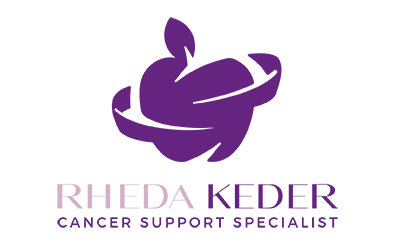Cancer Support Specialist | Chronic illnesses prevention and management | Tailored Cancer Protocols | Founder of Cancer support specialist
Ultra-processed Foods & Additives: Understanding the Toxic Substances and Effects on the Body
Processed foods are a part of our daily diet, but did you know they contain harmful additives linked to the current pandemics of diabetes, metabolic syndrome, cardiovascular diseases, and cancer? The unhealthy mix of refined sugars, salt, and oils in processed foods is a known problem, but food additives’ hidden and harmful presence is an additional concern.
Food additives are substances added to highly processed foods on an industrial level to change their taste, aroma, color, consistency, and preservability. There are around 2500 substances on the list of additives, and some of the most harmful ones are discussed below. These additives have established toxicity for the human body and are considered one of the leading causes of current pandemics.
Additives are present in numerous foods that are a significant part of the daily diet, especially for children and adolescents, including various types of preserved bread, frozen pizzas, salty snacks, breakfast cereals, biscuits, brioches, sweets, potato chips, sugary drinks, fruit juices, candies, ready-made soups, energy bars, light products, bread substitutes, hamburgers, sausages, and meat-based products, fruit yogurt, ice cream, precooked and frozen dishes.
Here are some of the most harmful additives and their effects on the body:
- Emulsifiers such as Carboxymethylcellulose and Polysorbate-80 are added to give creaminess to various processed foods. They are soap-like substances that destroy the protective mucus of the intestinal barrier and alter the bacterial flora, inducing dysbiosis and loss of biodiversity. They trigger inflammatory bowel diseases, systemic inflammation, anxiety, and depression.
- Inorganic phosphonates are different from organic phosphonates naturally present in foods. They are added to industrial processing and have an alarming toxicity profile. They create damage mainly to the walls of the arterial vessels, in particular endothelial dysfunction and vascular calcifications. A higher intake of phosphates in the diet significantly increases the risk of cardiovascular events, heart failure, atrial fibrillation, kidney diseases, tumors, and increased mortality.
- Microbial transglutaminases are food enzymes whose presence is not reported on the label. They are protein glue that improves food palatability, consistency, and shelf life. They are added to most processed foods, primarily bread and baked goods (including gluten-free), processed meats, dairy products, tofu, fish, homogenized products, etc. Microbial transglutaminase, by modifying gliadin (a gluten protein), initiates the autoimmune reaction typical of celiac disease. Such enzymes can damage the intestinal barrier, making it permeable and contributing to the onset of autoimmune diseases.
- Artificial sweeteners induce dysbiosis, promoting the growth of inflammation-associated bacteria. In just seven days, they can modify the composition of the intestinal bacterial flora and promote glucose intolerance.
- Common preservatives such as benzoic acid, sorbic acid (and their salts), sodium nitrite, calcium propionate, sulfites, and EDTA prevent or inhibit food spoilage. Their consumption is associated with inflammation, metabolic, and autoimmune diseases. Moreover, combining multiple preservatives has a synergistic effect of mutual potentiation and toxic effects on the microbiota.
- Propionate (E280-283) is an additive added to animal feed and widely used as an artificial flavor and preservative in cheese, bread, white bread, pizza, crackers, cookies, and other pastry products. It is an endocrine disruptor and is associated with the risk of diabetes and obesity.
- ACRYLAMIDE is formed when starchy foods are exposed to temperatures above 120 degrees Celsius, such as baking or frying. It is commonly found in cookies, crackers, cereal bread, rice cakes, french fries, coffee, and barley. ACRYLAMIDE is a potent genotoxic carcinogen, meaning it can cause DNA damage and potentially lead to cancer. Children are particularly vulnerable to its effects, making it concerning that some foods are often recommended as snacks or for weaning.
- FURAN is a highly carcinogenic substance often found in coffee and other processed foods such as ready-made soups, fruit juices, artificial infant milk, homogenized foods, and baby foods. The consumption of FURAN has been associated with an increased risk of cancer and liver damage.
- Lastly, FATTY ACID ESTERS are found in margarine, and vegetable oils are commonly used in many processed foods such as sweets, cakes, cookies, snacks, creams, artificial milk, and pizza. FATTY ACID ESTERS are known to induce tumors and are toxic to the kidneys. Therefore, consuming foods containing these additives regularly can harm our health.
Consuming ultra-processed foods and additives has become a significant concern for public health. Clinical trials have linked these additives to various health issues such as diabetes, metabolic syndrome, cardiovascular diseases, cancer, inflammatory bowel diseases, anxiety, and depression. It is crucial to be aware of additives’ harmful effects and limit their consumption in our diet. Opting for whole foods and avoiding processed foods as much as possible can be a better alternative for maintaining good health.

